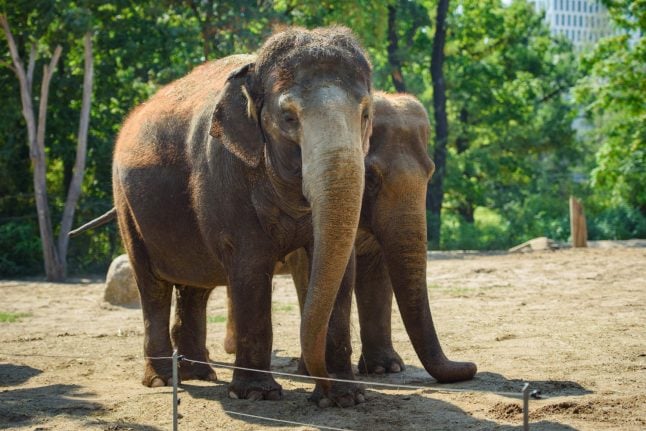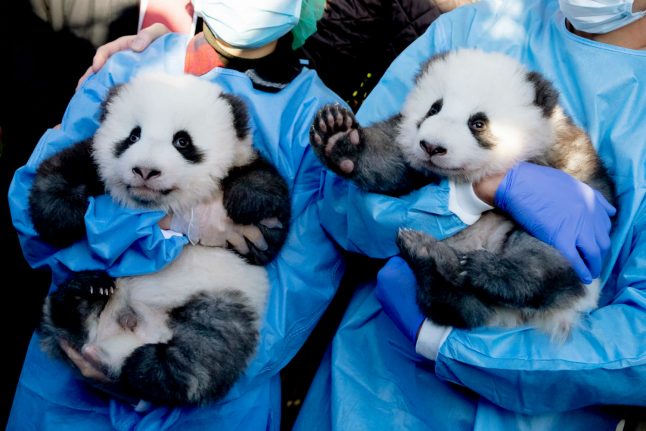The Asian elephant, estimated to be born in 1964, had increasingly struggled with age-related complaints typical of elephants, according to the zoo. Laying down was particularly difficult for her, so she had been sleeping standing up for about two years.
“Due to her progressive osteoarthritis, Tanja was so ill in the last few days that she couldn't make it outside and had to stay in the stable,” said Andreas Ochs, curator and head veterinarian at Berlin Zoo.
In addition, the elephant cow (the name given to female elephants) had lost a lot of weight due to her age and was increasingly struggling with vision problems and general weakness.
Tanja's condition had deteriorated to such an extent that she could hardly stand without leaning against something. Already in her last days at the zoo, Tanja had isolated herself from the rest of the herd, according to the zoo's statement.

Tanja in front of zoo visitors in August 2018. Photo: DPA
Avoiding further suffering
In order to avoid further suffering of the gentle giant, the zoo decided after coordination with veterinary colleagues of Free University's Institute for Animal Protection of the Free University of Berlin to put Tanja to sleep.
“In order to have responsible animal husbandry it’s also important to spare the animals further unnecessary suffering, however heavily such decisions always fall, said zoo director Andreas Knieriem.
Tanja came to Berlin Zoo from the Munich-based Krone Circus at the age of 10 in 1974. According to the zoo, she quickly integrated into the herd and was the zoo's main attraction.
The largest living land animal in south and southeast Asia, Asian elephants are currently classified as endangered. Studies have shown them to be highly intelligent and self-aware, able to display traits such as grief, compassion, and cooperation with others. They typically live up to 60 years in the wild.
At around 54, Tanya reached an age no other elephant in the German capital has achieved yet. However, since Tanja was taken from the wild, her exact age can’t be determined.
After Tanja's death, six Asian elephants still live in the Berlin Zoo in the leafy Tiergarten park – Drumbo (48), Carla (45), Lyoti (approx. 44), Pang Pha (31), Anchali (6) and Bulle Victor (24).




 Please whitelist us to continue reading.
Please whitelist us to continue reading.
Member comments